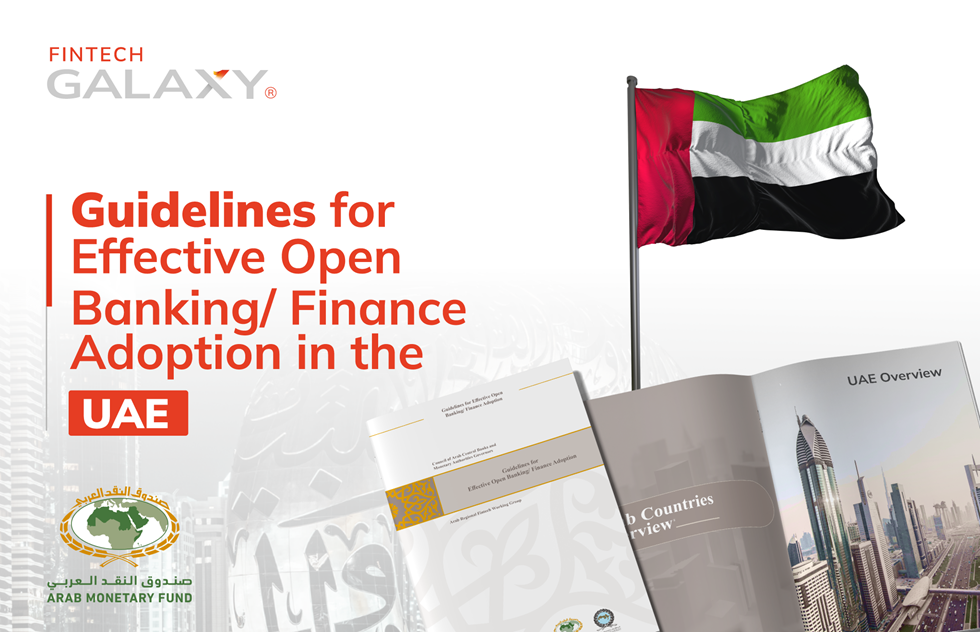We use cookies to ensue you get the best experience on our website

This is an excerpt from Guidelines for Effective Open Banking/ Finance Adoption created by the Council of Arab Central Banks and Monetary Authorities Governors, Arab Regional Fintech Working Group, Arab Monetary Fund, and Fintech Galaxy.
Open Banking (OB) is evolving into Open Finance (OF), encompassing a broader spectrum of financial services like investments, pensions, insurance, and consumer credit. In Arab countries, the shift towards open infrastructures fosters collaboration between financial institutions and Third-Party Providers (TPPs), catalyzing data sharing and bolstering innovation within the sector. According to recent statistics, Open Banking initiatives have seen significant traction, with over 60% of Arab nations actively developing OB frameworks by 2023. Central banks emerge as pivotal players in this transformation, crafting OB regulations to safeguard data, promote interoperability, and fortify consumer benefits and financial system resilience. Notably, studies indicate that the adoption of OB regulations could potentially inject an additional $320 billion into the MENA region's GDP by 2025.
These regulatory frameworks pave the way for many use cases, ranging from account aggregation to digital lending, underscoring the vast potential of OB and APIs. Recent market research reveals that OB-driven credit scoring services have led to a 15% reduction in default rates across participating financial institutions. Moreover, digital identity verification through OB channels has expedited customer onboarding processes by up to 40%, enhancing user experience and operational efficiency. With the rising popularity of Buy Now Pay Later (BNPL) arrangements, facilitated by OB-enabled account-to-account payments, analysts project a 25% increase in online retail transactions by the end of 2024. This dynamic landscape necessitates a culture of continuous improvement and adaptation, ensuring that OB initiatives remain agile and responsive to evolving consumer needs and technological advancements.
The UAE Progressive Approach
In the UAE, the landscape of financial services is rapidly evolving with the advent of Open Banking and Open Finance initiatives. The Central Bank of the UAE (CBUAE) is leading the charge towards Open Finance (OF) as part of its comprehensive Financial Infrastructure Transformation (FIT) Program. This initiative seeks to revolutionize the financial landscape in the UAE by embracing digital innovations and fostering collaboration among industry stakeholders.
Key Milestones Achieved
Under the FIT Program, the CBUAE has undertaken thorough assessments of the market and regulatory landscape. Through extensive engagement with licensed financial institutions (LFIs) and third-party providers (TPPs), the CBUAE has gained insights into their needs and concerns, ensuring a holistic approach towards enhancing financial services.
Addressing Challenges
1. Security and Privacy Concerns: Robust regulations, standards, and supervisory regimes are being established to safeguard customer data. The CBUAE is implementing measures to mitigate risks such as identity theft, fraud, and data breaches.
2. Interoperability and Standardization: Common data standards and protocols for APIs are being developed to facilitate seamless data exchange between financial institutions. Technical support and certification processes ensure interoperability and security.
3. Customer Education and Awareness: Public awareness campaigns and educational resources are being deployed to educate customers about the benefits and risks of Open Finance. Financial institutions are encouraged to provide clear information to customers about their data rights and usage.
CBUAE's Vision on Open Banking/Finance Adoption
From the perspective of the CBUAE, comprehensive regulatory frameworks, technical standards, and data sharing procedures are essential for successful OF adoption. Transparency, accountability, and collaboration among industry stakeholders are crucial to ensuring that OF benefits all parties involved.
The Future of Financial Services in the UAE
The FIT Program encompasses nine key initiatives aimed at accelerating digital transformation in financial services. By integrating initiatives such as a domestic card scheme, a Central Bank Digital Currency (CBDC), and an instant payment platform, the UAE aims to achieve enhanced financial inclusion, innovation, security, and efficiency by 2026.
As the UAE embraces Open Finance, it emerges as a regional hub for Fintech startups and investments. With intense competition and a thriving ecosystem, the country is poised to redefine the future of financial services in the MENA region and beyond.
Fintech Galaxy serves as a pivotal platform bridging financial institutions and third-party providers (TPPs), dedicated to fostering innovation and competition through state-of-the-art Open Banking and Open Finance solutions. With a recently acquired Sponsored TPP License from Saudi Payments, we are now advancing into the Go-Live phase, ensuring secure and seamless connections. Recently, Fintech Galaxy launched FINX Comply services in the United Arab Emirates, marking its full commitment to the country's digital financial sector. Our tailored offerings prioritize financial inclusion, enabling banks, insurance companies and other financial institutions to harness the advantages of cutting-edge technology. Committed to empowering both businesses and individuals in achieving their financial aspirations, we invite you to connect with us and explore the myriad ways we can support your journey towards success.